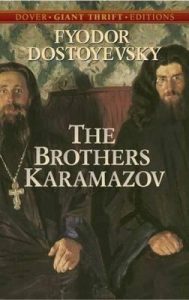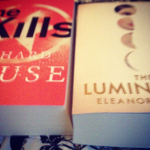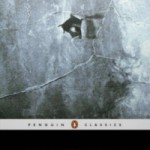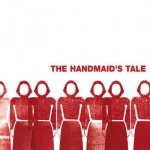 Title: The Brothers Karamazov (Goodreads)
Title: The Brothers Karamazov (Goodreads)
Author: Fyodor Dostoevsky
Translator: Constance Garnett
Published: Dover Thrift, 1880
Pages: 736
Genres: Classic
My Copy: Paperback
Buy: Amazon, Book Depository, Kindle (or visit your local Indie bookstore)
Written in the final years of Fyodor Dostoevsky’s life (he died four months after it was published), The Brothers Karamazov is probably his most philosophical novel. It tells the story of four very different brothers who all got involved in the murder of their own father. While similarities can be made between this novel and Crime and Punishment as they share similar themes, they are still vastly different. Rather this book deals more with life, death and the meaning of life.
“The mystery of human existence lies not in just staying alive, but in finding something to live for.”
At the start of the novel we meet Fyodor Pavlovich Karamazov, who fathers three sons during his two marriages and is rumoured for have fathered a fourth illegitimate son. He often makes the list when people talk about ‘the most disgusting characters’ in literature, or similar topics. This forms the basis of the plot and the brothers grow up with very different lives, separated from their father and each other. As a result these four brothers are very different; Dmitri is a sensualist, Ivan a rationalist (an atheist), Alexei is a novice in the Russian Orthodox Church and Pavel, well let’s just say, silent and sly.
The very different personalities of these brothers is what allows Fyodor Dostoevsky to explore all his philosophical ideas. One of the major themes in this novel is that of religion and while questioning faith is a common theme in modem literature at the time, in Russia it was considered big deal. In 987 Vladimir the Great sent out envoys to study the various religions of neighbouring nations in order to pick the right religion for Russia. Seems a little unorthodox (no pun intended) but eventually the nation adopted Orthodoxy. What became Russian Orthodoxy was embraced by all of Russia and had its own vision of creating a country of love and humility.
This is important because The Brothers Karamazov is not about questioning the existence of God but rather the role of the church when it comes to morality. It should be noted this was at a time where the Russian Socialism movement was gaining some traction and their goal was to create heaven on earth. With characters of vastly different ideals, Dostoevsky was able to explore the ideas he had floating in his head from different angles. Was Christianity simply a mask for the authority? In one of the most famous chapters Ivan talks about “The Great Inquisitor” which is a powerful argument of scepticism and against religious faith.
Other major themes found in the novel are that of fate and free will. This is closely connected with the ideas around religion. For Alexei, he has the freedom to commit to the order of the church, something that seems like a paradox to someone like Dmitri. Fyodor Dostoevsky explores the psychological makeup of control by society and authority. This plays into the Socialist debate at the time; do we have free will, when we are being controlled by the church or the Tsar. Or maybe we have the freewill but blindly follow the laws put in place by the church and the authority without question.
For Ivan, he lives by the philosophy that “everything is permitted”, which leads to another major theme, that of justice and morality. The murder of Fyodor Karamazov is at the centre of this theme, as well as the trail the follows. The Brothers Karamazov essentially wants the reader to question life, question their beliefs, and the roles of earthly or divine justice. The justice system found in the novel appears to be weird and problematic. The innocent are found guilty, the jury are manipulated by lawyers and the book even questions harsh punishments; like exile to Siberia. It is here we wonder about the different between morality and the laws imposed upon us.
There is so much more you can get out of The Brothers Karamazov (for example family) but for me, this reading through was about questioning life in the lead up to death. I really liked how Fyodor Dostoevsky used the different brothers to explore the different angles and question his own beliefs. Dostoevsky often wrote about society, religion, politics and ethics, however in his final years while writing The Brothers Karamazov, we get the sense that he was thinking more about his own life and his legacy. In fact his tombstone is inscribed with the verse from John 12:24; “Verily, verily, I say unto you, Except a corn of wheat fall into the ground and die, it abideth alone: but if it dies, it bringeth forth much fruit.” Most people know that I’m a fan of Fyodor Dostoevsky and I am so glad to have read The Brothers Karamazov however next time I plan to read it in the David McDuff translation, rather than this one translated by Constance Garnett.












I find Dostoevsky’s longer work quite daunting, but I am planning to read some of his shorter work soon, probably Notes From Underground or The Double. After reading your post I feel like I might have to bump this up in priority. It sounds fantastic.
I think any Dostoevsky is well worth the efforts. I would always recommend Crime and Punishment as one of the greatest books of all time.
The McDuff translation is excellent. I felt exhausted by the time I’d finished the book: all that emotion and soul-searching wore me out. 🙂 I loved it, though. D’s treatment of women is ‘interesting’…
Wish I asked you first before reading the book, but next time, I will be using the McDuff translation for sure.